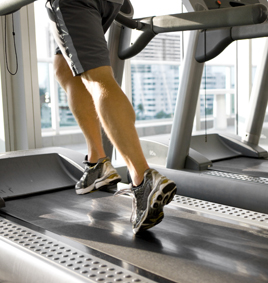By Ann Gates (@exerciseworks)
Can health care consultations change to incorporate best practice ‘exercise medicine?’

In 2012, we sent out a ‘call to action’ to ALL health professionals about the pandemic of obesity and non communicable diseases (NCDs) which results in 36 million patients (worldwide) dying from preventable and treatable diseases. This call was enthusiastically answered by many health professionals and health organisations. However, inactivity is still the world’s 4th leading cause of death and the recent global physical inactivity maps could be easily be superimposed across the world obesity maps, showing a similar distribution of chronic disease and inactivity. This is no medical coincidence.
It is well documented, (and we all know), that the relationships between preventable diseases, inactivity and the determinants of those diseases are complex and multi-factorial. The time has arrived for health professionals to give an ‘evidence based brief intervention’ exercise prescription. This ‘prescription to exercise’ should be championed by all health, sports and exercise, and fitness professionals. It is not a specialism that is just for a few to practice. Giving exercise advice should be as medically intuitive as writing a medicine prescription or providing a referral.
We know that in sustained behaviour change, brief interventions work! Consider the example of a patient with breast cancer; we treat the disease by advising the patient on the options of chemotherapy, surgery, radiotherapy and a variety of other key health care interventions. Patients follow and respect our advice during a time of despair, confusion and worry. That’s because health professionals are trained to help provide the best support and medical advice they can give to breast cancer patients. And, (in the majority of cases), patients are grateful and benefit clinically from that expert advice. However, in many breast cancer consultations, patients are still not offered exercise advice despite evidence that this supports the patient clinically and emotionally. So why aren’t we seeing brief intervention exercise advice in all consultations, when health professionals know that it can significantly reduce the risks of chronic diseases and their symptoms?
Consider the situation we have globally. Patients are facing the greatest risk of NCDs through inactivity, poor lifestyle habits and lack of access to suitable exercise and physical activity opportunities. If we think about the patient in the consultation, why is it that we can’t give exercise as a medicine? Patients are suffering from obesity, cancer, diabetes, heart disease, stroke, osteoporosis, and poor mental health. Yet we know that a variety of medicines and treatments are available. Is it not conceivable that trained health professionals can’t give disease specific, exercise advice?
And of course the basic answer is that all health professionals can give quality exercise advice to their patients: even if it’s just an enthusiastic endorsement of national and international exercise guidelines as a brief intervention!
We ought to be giving more to our patients. In 21st century medicine we should go beyond the basics.
We should know which exercises work best for a Parkinson’s disease patient or any other disease or ailment. Just like we know how to prescribe which medicines to an asthma patient. When exercise medicine is incorporated as part of clinical training for all health professionals, and supported by cultural change within health organisations and the public at large- we will then be moving to this ideal patient/health professional consultation scenario:
“What exercise can I do Doc?” asked the patient
“There are lots of fun exercises and physical activity opportunities to improve your symptoms/disease condition by…” replied the health professional.
And yes- health care consultations can change, evolve AND deliver better exercise advice to the majority of patients.
McGraw Medical Education Australia has published a series of ‘patient exercise sheets’ by Exercise Works!
For further details and licensing arrangements please contact: Mr Andy Santhosh andy_santhosh@mcgraw-hill.com +61 2 9900 1826
***************************************************
Ann Gates BPharm(Hons) MRPharmS
Founder of Exercise Works!